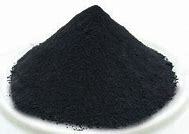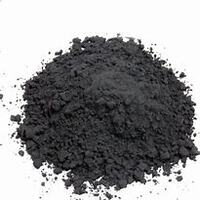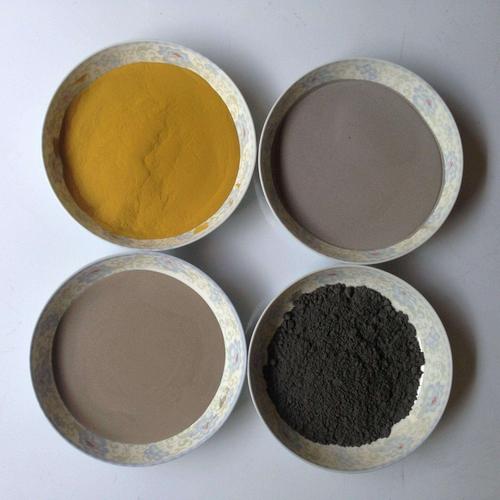Overview of Custom Fabrication Selective Laser Melting Industrial Metal 3D Printing Titanium Aluminum Steel Additive Manufacturing
Titanium-based 3D printing, also known as Additive Manufacturing (AM) with titanium alloys, is an advanced manufacturing process that utilizes selective laser melting (SLM), electron beam melting (EBM), or binder jetting to fabricate complex geometries and functional parts directly from titanium powders. This technology leverages titanium's exceptional properties, including high strength-to-weight ratio, corrosion resistance, and biocompatibility, to create parts for demanding industries such as aerospace, medical, and automotive.
Features of Custom Fabrication Selective Laser Melting Industrial Metal 3D Printing Titanium Aluminum Steel Additive Manufacturing
Complex Geometry Fabrication: Enables production of intricate designs and internal structures impossible or extremely difficult with traditional manufacturing methods.
Material Efficiency: Reduces waste by using only the required amount of titanium powder, leading to material savings and environmental benefits.
Strength and Lightweight: Utilizes titanium’s natural properties to create lightweight yet strong components, essential for aerospace and performance-driven applications.
Customization: Facilitates the production of patient-specific medical implants and customized parts, taking advantage of 3D printing's design flexibility.
Reduced Lead Times: Streamlines manufacturing processes, allowing faster prototyping and production of parts compared to conventional methods.

(Custom Fabrication Selective Laser Melting Industrial Metal 3D Printing Titanium Aluminum Steel Additive Manufacturing)
The "Parameter" in this context likely refers to the specific settings or parameters used in the process of custom fabrication using selective laser melting (SLM) industrial metal 3D printing and additive manufacturing with titanium, aluminum, and steel materials. Here are some possible parameters that may be relevant: 1. Temperature: The temperature of the melt pool plays a crucial role in the success of SLM and additive manufacturing processes. It affects the melting rate, the material's properties, and the appearance of the printed parts. 2. Speed: The speed at which the melt pool is heated and transferred to the substrate determines the quality and consistency of the final part. Faster speeds can lead to lower-quality parts but may also result in faster tool wear and require more frequent adjustments to ensure optimal performance. 3. Pressure: The pressure applied during SLM and additive manufacturing processes affects the flow and mixing of the molten material, as well as the strength and stability of the printed parts. 4. Material type and composition: The choice of metal for SLM and additive manufacturing can affect its compatibility with the selected materials and its properties. Different metals have different melting temperatures, melting points, and strength requirements, so selecting the right metal(s) is critical for obtaining accurate results. 5. Defect tolerance: SLM and additive manufacturing processes typically produce parts with varying levels of accuracy and surface finish. This can impact the overall reliability of the part. Optimizing these parameters to achieve high defect tolerance is essential for ensuring the part meets the desired specifications and operates smoothly. 6. Print layer thickness and resolution: The layer thickness and resolution determine the level of detail and detail in the printed part. Optimal print layer thickness and resolution are necessary to ensure the highest quality part without sacrificing print time or accuracy. 7. Post-processing and refinement: The post-processing and refinement step involves applying corrections to the printed part, such as polishing, painting, or adding attachments, to improve its overall appearance and functionality. Adjusting these parameters can help refine the printed part and optimize its performance. In summary, the specific parameters involved in custom fabrication using SLM and additive manufacturing with titanium, aluminum, and steel materials depend on various factors, including the chosen method, the intended application, and the requirements of the end-users. Continuously monitoring and optimizing these parameters can help improve the performance of the resulting parts and ensure their durability, efficiency, and aesthetics.

(Custom Fabrication Selective Laser Melting Industrial Metal 3D Printing Titanium Aluminum Steel Additive Manufacturing)
Applications of Custom Fabrication Selective Laser Melting Industrial Metal 3D Printing Titanium Aluminum Steel Additive Manufacturing
Aerospace: Manufacturing of lightweight turbine blades, structural components, and engine parts that can withstand high temperatures and stress.
Medical Implants: Producing customized implants like hip joints, cranial plates, and dental implants, which benefit from titanium's biocompatibility and tailor-made designs.
Automotive and Racing: Creating high-performance parts such as exhaust systems, suspension components, and engine parts for reduced weight and enhanced performance.
Defense: Fabricating lightweight armor and tactical gear, taking advantage of titanium's strength and durability.
Energy: Manufacturing components for the oil & gas industry and renewable energy sectors, where corrosion resistance and durability are crucial.
Company Profile
Kmpass is a trusted global chemical material supplier & manufacturer with over 12-year-experience in providing super high-quality 3D printing powder and relative products.
The company has a professional technical department and Quality Supervision Department, a well-equipped laboratory, and equipped with advanced testing equipment and after-sales customer service center.
If you are looking for high-quality 3D printing materials and relative products, please feel free to contact us or click on the needed products to send an inquiry.
Payment Methods
L/C, T/T, Western Union, Paypal, Credit Card etc.
Shipment
It could be shipped by sea, by air, or by reveal ASAP as soon as repayment receipt.
FAQs of Custom Fabrication Selective Laser Melting Industrial Metal 3D Printing Titanium Aluminum Steel Additive Manufacturing
Q: Is Custom Fabrication Selective Laser Melting Industrial Metal 3D Printing Titanium Aluminum Steel Additive Manufacturing cost-effective? A: While the initial setup and material costs can be high, the technology reduces waste and allows for complex designs, which can lead to cost savings in specific applications and volumes.
Q: What are the common titanium alloys used in 3D printing? A: Popular titanium alloys include Ti-6Al-4V (titanium with 6% aluminum and 4% vanadium), known for its balanced properties, and Ti-6Al-4V ELI, used for biomedical applications due to its enhanced ductility.
Q: Can Custom Fabrication Selective Laser Melting Industrial Metal 3D Printing Titanium Aluminum Steel Additive Manufacturing match the strength of traditionally manufactured titanium parts? A: Yes, with proper post-processing, including heat treatment, titanium 3D printed parts can achieve mechanical properties comparable to, and in some cases, exceed those of forged or cast titanium parts.
Q: Are there any limitations to titanium 3D printing? A: Some limitations include high equipment costs, post-processing requirements, and the need for specialized design considerations to prevent part distortion and ensure structural integrity.
Q: How does Custom Fabrication Selective Laser Melting Industrial Metal 3D Printing Titanium Aluminum Steel Additive Manufacturing impact the environment? A: While the process consumes significant energy, it promotes sustainability by reducing material waste and enabling lightweight designs that improve fuel efficiency in transportation industries.

(Custom Fabrication Selective Laser Melting Industrial Metal 3D Printing Titanium Aluminum Steel Additive Manufacturing)



